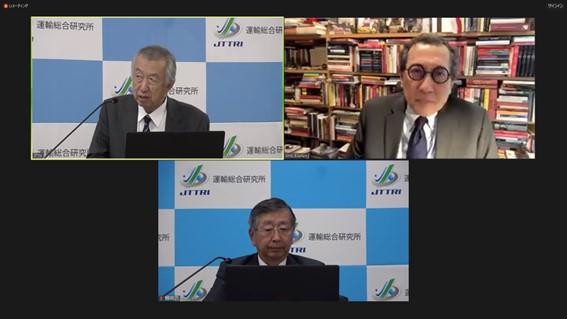The 2nd JTTRI Global Seminar
“ASEAN-Japan Relations in the Next Half Century: On the Occasion of the 50th Anniversary of ASEAN-Japan Friendship and Cooperation"
- Symposium etc.
- International Activities
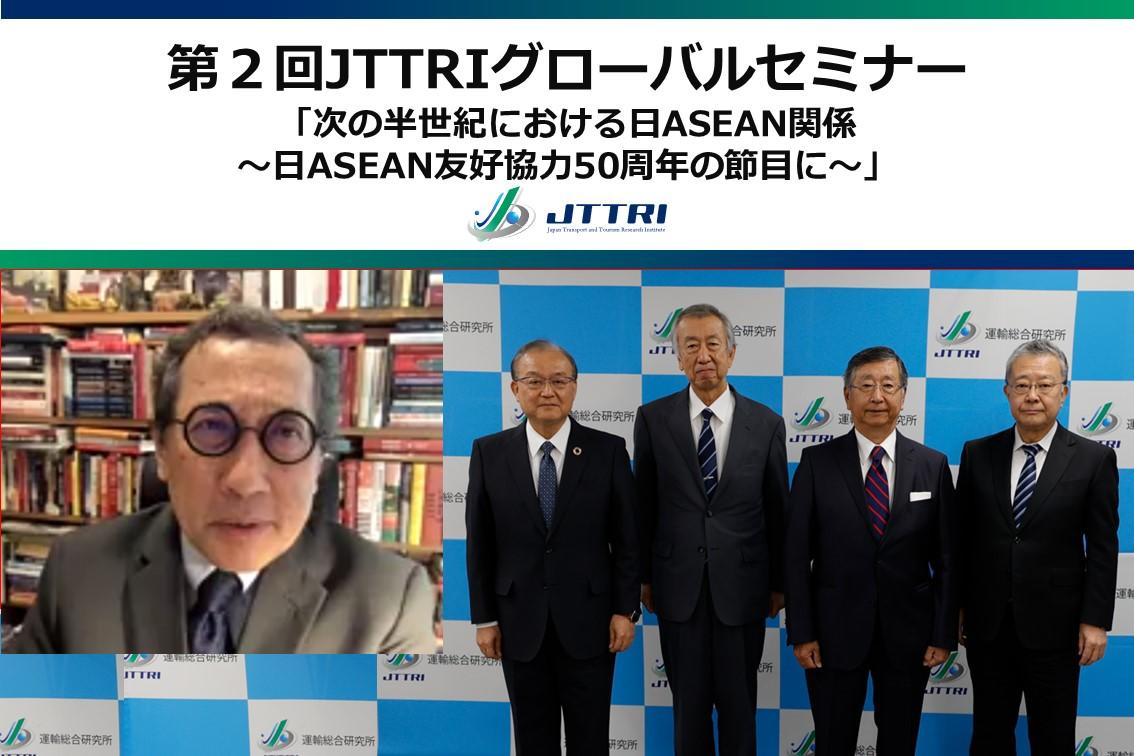

| Date / Time | Wed, Nov 01,2023 15:00-17:00 (JST) / 14:00-16:00 (SST) |
|---|---|
| Venue | Hybrid event ( [Venue] JTTRI 2F Conference Room and ZOOM participation) |
| Theme | (1) Keynote Speech#1: Changes in the Environment Surrounding ASEAN and ASEAN-Japan Relations Mr. Bilahari Kausikan, Former Permanent Secretary of Singapore’s Ministry of Foreign Affairs (2) Keynote Speech#2: Economic Development of the Indo-Pacific Region and ASEAN-Japan Cooperation Mr. Koji Tsuruoka, Former Ambassador Extraordinary and Plenipotentiary to the United Kingdom Director, Institute for International Affairs (3) Discussion: the future of ASEAN-Japan relations Discussant: Mr. Bilahari Kausikan (see above) Mr. Koji Tsuruoka (see above) Moderator: Mr. Makio Miyagawa, Former Ambassador Extraordinary and Plenipotentiary to Malaysia, Former Special Advisor on National Security |
Event Summary
Southeast Asia is a world growth center that has achieved historic economic development, but it is also struggling with domestic problems such as poverty, global issues such as climate changes, and the geopolitical and geoeconomic risks such as the strategic competition between the U.S. and China. Japan has traditionally been deeply involved in Southeast Asia as a crucial node of the sea lanes, and as an important trading and investment destination. Peace and stability in the region is an essential condition for Japan's survival.This year marks the 50th anniversary of the beginning of diplomatic relations between ASEAN and Japan in 1973. In this Seminar, we have invited three former diplomats to discuss the current international environment surrounding ASEAN and Japan, and how we can further develop ASEAN-Japan relations in the next half century.
Main related SDGs
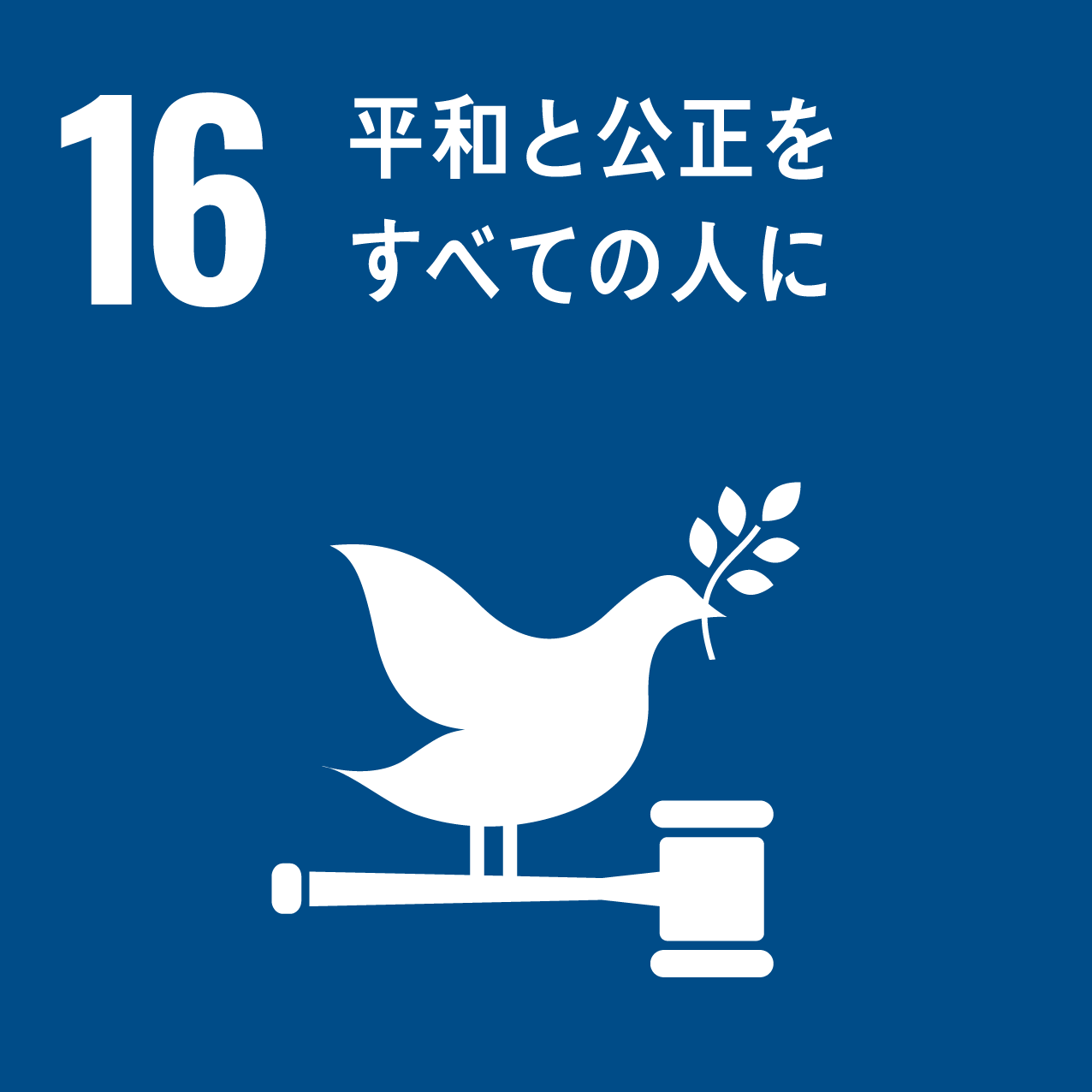
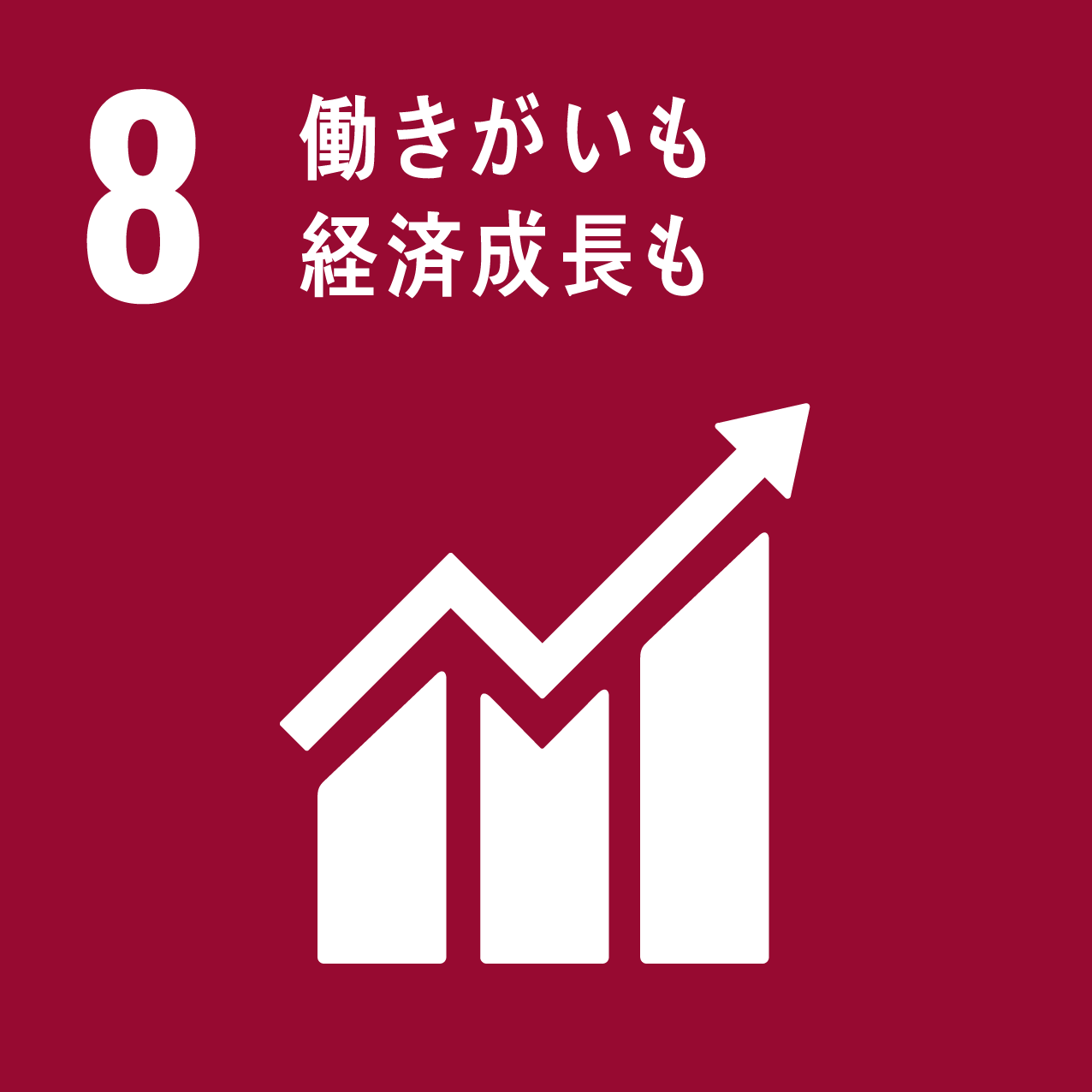
Program of the seminar is as the following
| Opening Remarks |
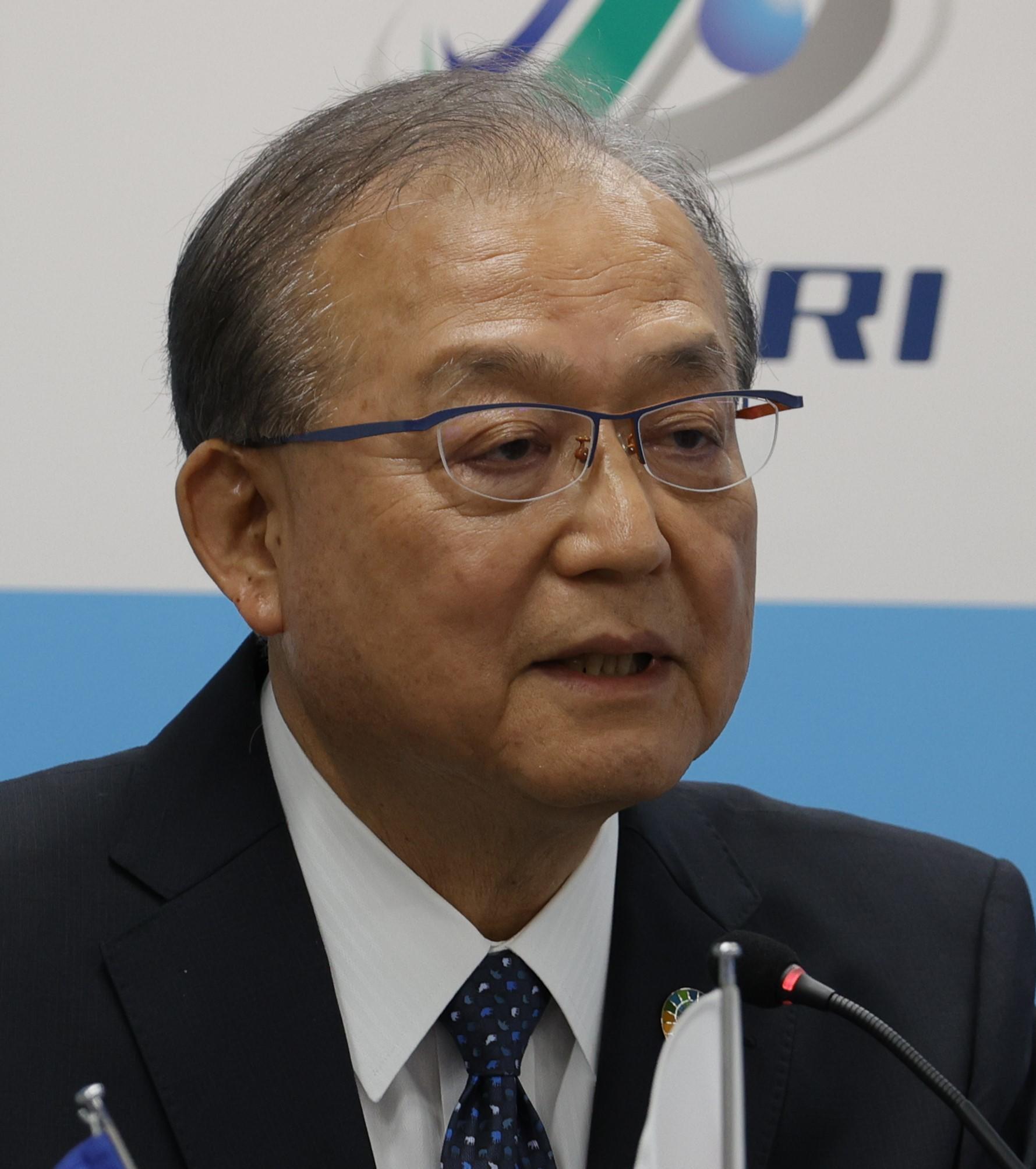
Mr. Masafumi Shukuri |
|---|---|
| Keynote Speech#1 |
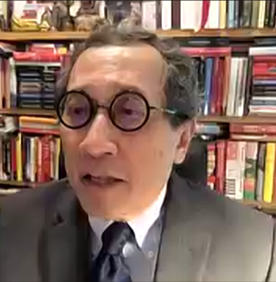
Mr. Bilahari Kausikan |
| Keynote Speech#2 |
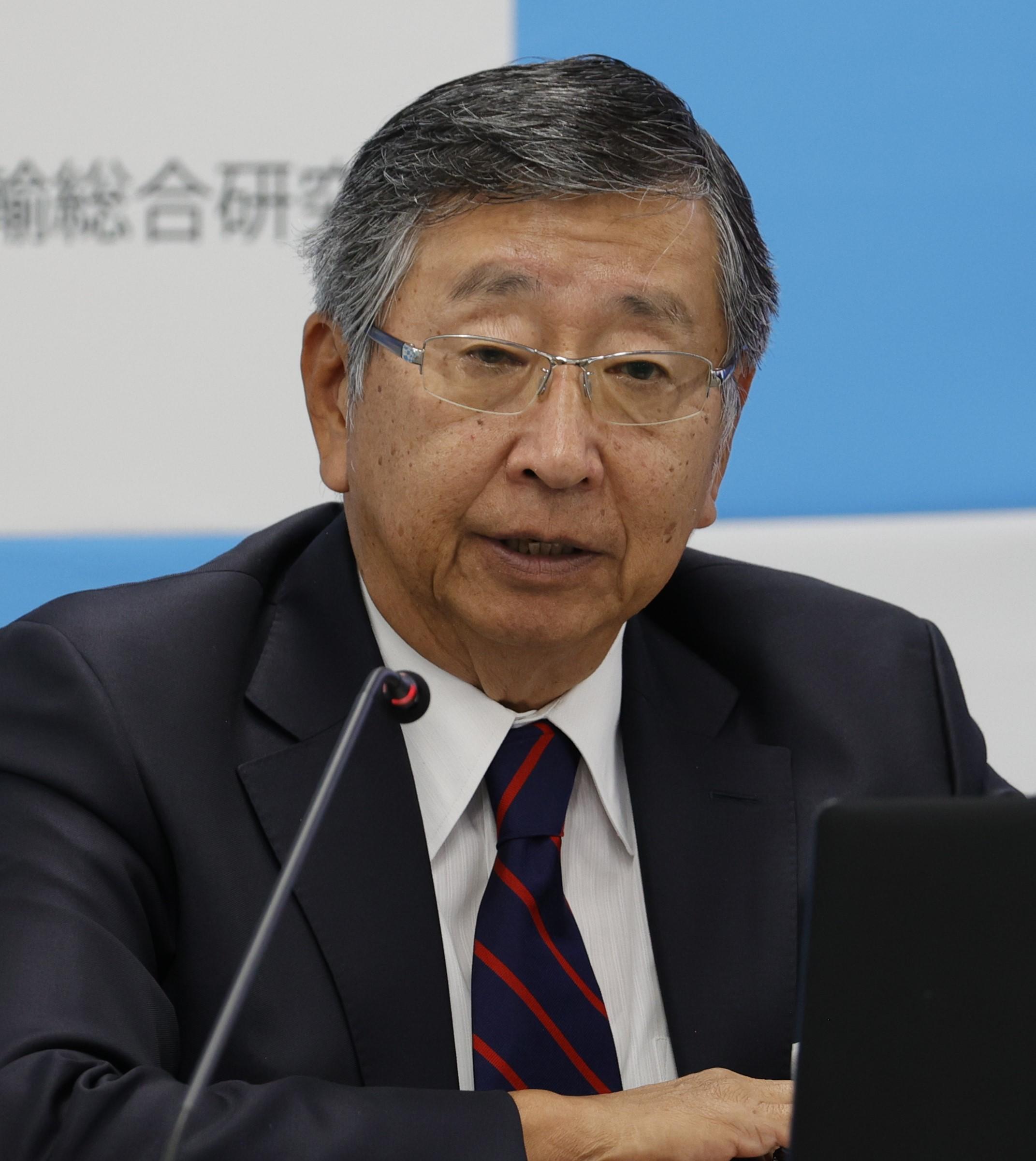
Mr. Koji Tsuruoka |
| Discussion |
<Moderator> Mr. Makio Miyagawa Former Ambassador Extraordinary and Plenipotentiary to Malaysia Former Special Advisor on National Security 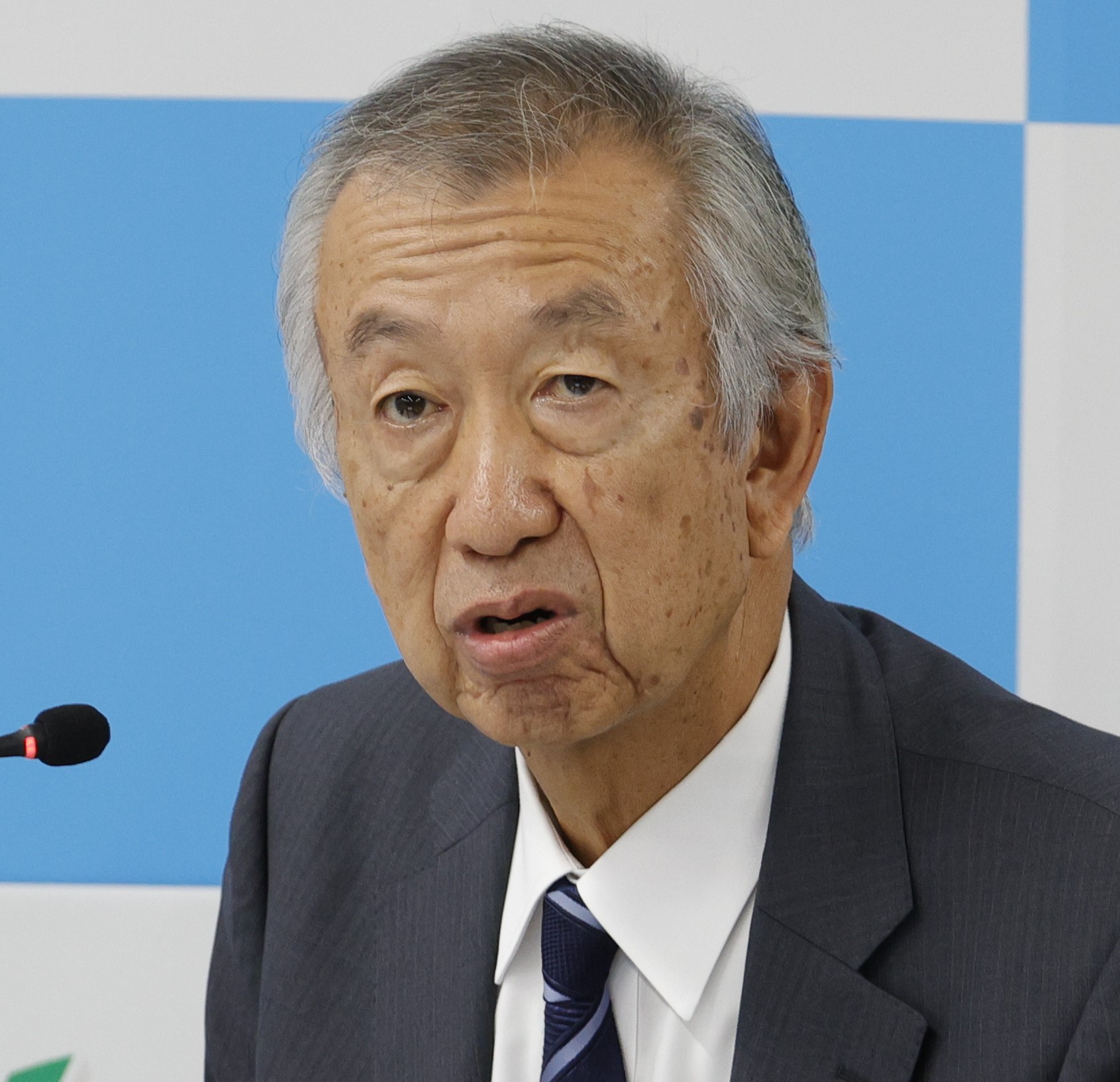 Bio Discussant: Mr. Bilahari Kausikan (see above) Mr. Koji Tsuruoka (see above) |
| Ending Remarks |
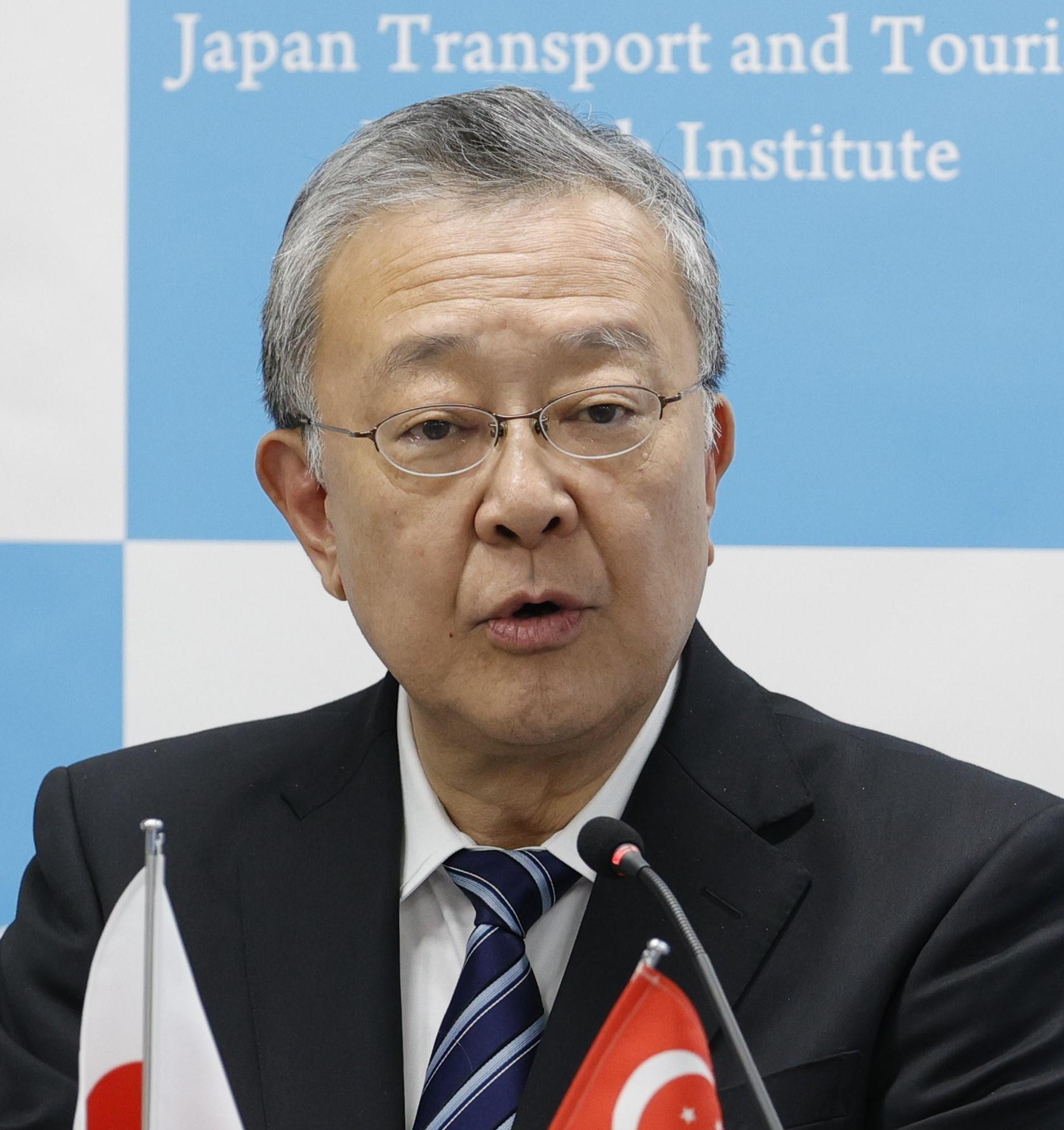
Mr. Tetsuya Okuda |
Outline of the seminar
Outline of the seminar Following opening remarks by Mr. Masahumi Shukuri, Chairman of the Japan Transportation and Tourism Research Institute (JTTRI), keynote speeches were delivered by Mr. Vilahari Kaushikan, Former Permanent Secretary for the Ministry of Foreign Affairs, Singapore, and Mr. Koji Tsuruoka, Former Ambassador Extraordinary and Plenipotentiary to the United Kingdom / Director, Institute for International Affairs, on the theme of Japan-ASEAN relations in the next half century, to mark the 50th anniversary of the establishment of Japan-ASEAN relations. After the keynote speeches, Mr. Makio Miyagawa, Former Ambassador Extraordinary and Plenipotentiary to Malaysia and Former Special Advisor on National Security, moderated a discussion between Ambassador Bilahari and Mr. Tsuruoka on ASEAN-Japan relations and ASEAN-Japan cooperation.【Summary of the Keynote Speech by Mr. Vilahari Kaushikan】
・Discussed ASEAN-Japan relations, mainly from a security perspective.
・Where the unstable and uncertain security environment is expected to continue, such as the U.S.-China strategic competition and the war in Ukraine and Gaza, Japan's security role in Southeast Asia will become more explicit.
・Southeast Asia's strategic reality faces two conflicting and contradictory realities. The aggressive foreign policy of China has highlighted the indispensable role of the United States in maintaining regional balance of power in Southeast Asia, while the U.S. government, which is not currently facing an existential crisis, is distracted by domestic politics and its own immediate interests.
・In this situation, Japan needs to assume a clear security role in Southeast Asia in three functions.
・Firstly, as a party to the Japan-U.S. Alliance, Japan should serve as an anchor to hold the U.S. presence in the Southeast Asia. The Japan-U.S. alliance has served as the basis for U.S. engagement in the region as a security infrastructure for the entire region, but since the end of the Cold War, the U.S. has come to demand more responsibility and burden-sharing to its allies and partners as for regional security. Thus, we should not take the Japan-U.S. Alliance and U.S. presence for granted and show dauntless wills to join the US efforts to keep regional security by continuously strengthening Japan's contribution capabilities.
・Secondly, for the United States, its strategic interest in Southeast Asia is to secure the use of the Indian and Pacific sea-lanes, but cooperation with Southeast Asian countries is not essential condition for this purpose. On the other hand, for Japan, a regional power, the Southeast Asian region itself is central to Japan's national interests, and cooperation with Southeast Asian countries is a necessity. In the event of fluctuations in U.S. interests and policies, which would occur inevitably, its harms can be softened by Japan, supplementing the role of the US, for example, through the deployment of the Japan Maritime Self Defense Force to cover the mission of U.S. 7th Fleet. Japan should plan what can do, consulting with the other power, such as India, Australia, and South Korea, which have the will to be involved into the security of Southeast Asia.
・Thirdly, according to a research institute based in Singapore, Japan is the most trusted actor among ASEAN member countries. ASEAN countries may have difficulty cooperating directly with the U.S. due to domestic politics, including anti-Western sentiments inherent in a country with a large Muslim population. Japan can act as a proxy for the U.S. in such cases. In addition to the MDA capacity building effort, which Japan is already providing to Southeast Asian countries, Japan is expected to export made-in-Japan military equipment including naval vessels in response to requests from them.
・Thanks to the recently deceased Prime Minister Abe, Japan has already made a start in this direction, but these efforts must be sustained over the next decade or more. However, it is difficult to say that a consensus has yet to be formed in the academic, media, and business communities. In the recent past government of Japan, there could be seen a number of prime ministers had changed in a short period of time in the past. Such instability in the government of Japan, if occurred again, could lose Japanese credibility both domestically and internationally.
【Summary of the Keynote Speech by Mr. Kouji Tsuruoka】
・Discussed ASEAN-Japan relations, mainly from an economic perspective.
・ASEAN-Japan has built an equal partnership based on mutual trust over the past 50 years. According to the most recent (2022) survey by Japan's Ministry of Foreign Affairs, the level of trust in Japan by ASEAN countries is over 90%. This is a result of Japan's diplomatic style of listening and working with Southeast Asian countries on the basis of equal partnership and mutual respect. This consensus-based approach takes time to reach agreement, but this time taking negotiation will lead the other side not to feel coerced and to be willing to keep the agreement. In ASEAN-Japan relation, this has worked particularly well, and it is necessary such an Asian-way or ASEAN-way should be maintained in the future.
・Both ASEAN and Japan face difficult challenges, which require mutual support to deal with them. Japan faces domestic issues such as low birthrate, aging population, and slowing growth. Also, Japan has to reinvigorate its economy in order to strengthen its national power. ASEAN, on the other hand, has also difficult issues to resolve by themselves, such as the problems of the Myanmar junta and China’s challenges posed by China, including the South China Sea territorial issue.
・Japan and ASEAN economies have grown mainly driven by the private sector. With a large market formed by the region's population of 680 million people, relatively stable politics, and upholding of the rule of law, Southeast Asian countries provide a favorable business environment for Japanese companies. In order to reduce production costs and keep competitiveness, Japan has been seeking and investing in suppliers who can produce components with higher quality for less costs around the world. ASEAN countries has attracted very huge part of investment from Japan, and cumulative amount of investment from Japan is the highest among other states.
・However, with the rise of China, it is now the largest trading partner for both ASEAN and Japan. Though it is a natural consequence of China's market size and importance in international trade, it also imposes economic security problems for trading partners or investors by weaponizing its huge market to resolve diplomatic conflicts. China has imposed states like Australia and Philippines severe embargoes on Australian wine and Philippine bananas. But these China’s apparent disregard to WTO rules has been overlooked from the world. Now we are obliged to face the reality that global supply chains can be easily disrupted by non-economic reasons, and thus predictability and stability in economic relations are vaporized.
・Japan highly depends on China for critical components or minerals. Such vulnerabilities of supply chains must be complemented. Here, it is ASEAN states that can be alternative node of resilient supply chain for Japan. In addition to policy coordination between Japan and ASEAN, Japan should pursue to strengthen bilateral cooperation with ASEAN member countries, promote ASEAN countries to join multilateral economic frameworks such as TPP/CPTPP and IPEF, and strengthen economic relations based on common rules.
・Where both Japan and ASEAN are likely to face difficult times in the future, ASEAN-Japan should face the human security issues and develop an environment where everyone can realize and fulfill his or her potential. Oppression against individuals will surely raise antagonism to government, which is the cause of military conflict. ASEAN-Japan must prevent such conflicts, and ensure the peace and stability in the region, which would finally promise the region’s prosperous future. Aiding these regional efforts, Japan would be able to get a share of regional prosperity, which would be important resource of further development of Japan.
【Summary of discussion between speakers】
1) What are Asian values?
[Ambassador Bilahari]
・Asian countries generally recognize individuals not as individual units but as members of communities. However, Asia is vast and diverse, and such common Asian values should not be overestimated. There have been numerous cases of interregional wars between Asian states, and common values do not guarantee stability in the region. Common interests are necessary for members to form unified action.
[Ambassador Tsuruoka]
・There are various layers of universal values, regional values, national values, and family values, but there must be not only difference, but also common grounds. What is important is to have tolerance for the differences in terms of nations, nationalities, and religions. Any attempt to paint them all in one color is oppression itself, and when such oppressive rules are enacted without the participation of those being enforced, they are sure to provoke a backlash.
・The Global South issue has the same root. Developing countries with so anti-Western views come to insist on not blindly following the postwar global governance system created by the West because they were not original stakeholders to establish Bretton Woods Accords or the United Nations. “Global South” is the eulogistic name dedicated for such group of developing countries.
・In particular, Southeast Asia always request to be part of the rule-making process and tend to refuse to be forced to abide by rules they do not agree with, even if those rules are necessary. ASEAN's lack of alignment on sanctions against Russia for its invasion of Ukraine is a manifestation of this.
・The current international order has worked well so far. This fact can be crucial cause to maintain the current order in the future, but it is necessary to establish a vision that everyone can agree on. For the next 50 years, the international community must create such a vision, and furthermore, in the process of formulating it, it is necessary to seek the involvement of all nations, to bring ideas and knowledge to the table, and to make efforts to continue discussions.
・More importantly, it is paradoxical that Asians tend to stay on the sidelines despite their demand to join. It remains to be seen whether the countries of the Global South, which should play more responsible role in establishing future international order, will actively engage and strive to build new institutions and mechanisms that are inclusive, universal, open, and free, once they are included. The ASEAN-Japan relationship is an appropriate starting point, and it would be good to present to the world as a model for how to conduct discussions on new international order.
2) Isn't ASEAN in danger of fragmentation due to changes in the international environment, such as the U.S.-China confrontation? Could intra-regional disagreements on strategic issues and insistence on a "free and open Indo-Pacific" call for a geopolitical change in ASEAN?
[Ambassador Bilahari]
・Competition and conflicts among sovereign states are natural in international relations. The only time such conflicts did not manifest themselves was during the 20-odd years of U.S. unipolar domination after the end of the Cold War, which is a rare phenomenon in history. We are now returning to a historically “normal” era of interstate competition.
・As for Ambassador Tsuruoka’s question, “ Whether the Global South can suggest coherent alternatives to current international order?”, frameworks such as the Global South, the Non-Aligned Movement, the G77, and the BRICs are merely movements responding to existing discontents to current international order and are not coherent institutions. For example, BRICs contains their own internal antagonisms, such as Egypt-Ethiopia and India-China. It is difficult to overcome the differences of interests among each member states, and to collectively propose coherent alternatives for current international order.
・As for ASEAN, there is misperception on ASEAN’s role. ASEAN is a multilateral organization built to manage the unstable diplomatic relations among its member countries. ASEAN is operated under consensus among its members, which is because it is the only way to prevent small disagreements among member countries from turning into major conflicts. Therefore, ASEAN cannot take a common position on issues such as Palestine, Ukraine, or territorial disputes in the South China Sea; the common interest of ASEAN members is to work well together as ASEAN and to maintain stable state-to-state relations in Southeast Asia. We should be pragmatic about what can be done, not idealistic in our pursuit of what should be done.
[Ambassador Tsuruoka]
・Consensus is necessary in international relations, and the philosophy of "no one is left behind" exists in Japan. However, even if all members walk together toward the future, leadership is necessary to direct where to go, and a vision for the future is necessary. Prime Minister Fukuda's "heart to heart" statement was such a vision united Japan and ASEAN in the past, but a new vision for the future is necessary, which should be formed through collaboration of Japan and ASEAN.
・In order to keep the presence of the U.S. in Southeast Asia for the future, US citizens must support the decision made by their government to do so. Japan and ASEAN should communicate to US citizens on their support and appreciation for the US military and economic presence. By doing so, Japan and ASEAN also show their reliability as a good regional partner of the US.
3) With China's superiority over the U.S. in terms of naval and intermediate-range nuclear forces in the Far East becoming clear, the South Korean president visited the U.S. to establish U.S.-South Korean Nuclear Consultative Group. How should the balance of conventional and nuclear forces in the region be secured?
[Ambassador Bilahari]
・China, Russia, and North Korea develops their nuclear second-strike capability (*The ability to counterattack against a first strike with nuclear weapons) and Japan needs the US nuclear umbrella, which extends their deterrence against aggression by regional nuclear states. However, it is doubtful that dependence on U.S. nuclear deterrence can be maintained forever. Like the U.K. and France, Japan and South Korea will be forced to arm themselves with nuclear weapons under the alliance with the U.S., in the long, long future.
・In Asia, today interstate competition has become normal and both nuclear and conventional deterrence are necessary. In Southeast Asia, Singapore, Indonesia, and Vietnam are serious to work on defense build-up, while other countries are only working on what they can do at present.
・I believe that bilateral or mini-lateral forums for security cooperation will become more active in the future. This year, Indonesia sent their troops to join the US-Australian military exercise "Talisman Saber." Multilateral military cooperation become so deeply that even the longtime nonaligned state like Indonesia come to join multilateral exercises or operations.
・It is time to discuss the renewal of the U.S. nuclear umbrella, the upgrading of U.S. alliances and partnerships in each country, and mini-lateral initiatives by regional countries.
・ASEAN are not yet ready to join military and security cooperation with non-ASEAN powers, inviting all member of ASEAN. However, it is possible to hold mini-lateral military activities involving some ASEAN member states which are willing for such cooperations. Though Japan has already begin its efforts to improve mini-lateral cooperation, it is necessary to make further efforts.
[Ambassador Tsuruoka]
・Russian invasion to Ukraine demonstrated the significance of nuclear weapon possession. Currently Russian nuclear arsenals deter the US and Europe to attack Russi, and some asserts that this is the very necessity to possess nuclear weapons if you do not want to be attacked.
・However, if Japan possesses nuclear weapons, it cannot cause favorable change in its current security environment. It will take time to attain combat readiness of nuclear weapons. Before Japan will be ready, Japan’s intention to be nuclear power invoke huge instability in the Far East, which would bring more serious security risks for Japan.
・With regard to conventional weapons, especially naval assets, US and China military power is becoming numerically balanced. Considering the need for the US to maintain its global presence throughout the world, in the Far East Asia, China may be locally superior to the US 7th Fleet. To ensure the US deterrence to China more credible, Japan must complement the presence of the US naval power.
・We assume that China's monopoly of maritime interests in the South China Sea is primarily aimed at ensuring the survivability of its SLBM (=Submarine Launched Ballistic Missile) equipped submarines. China is thought to be trying to increase the certainty of China's nuclear deterrence against the U.S. by keeping its own SLBM-equipped submarines hidden in the depth of the South China Sea in order to avoid surveillance by the U.S. and to ensure its second-strike capability in the event of a crisis. If this is achieved, China will be able to engage in more militarily adventurous activities without worrying about a U.S. attack, which is a major threat to the region.
・The countries concerned, including Japan, need to discuss these intentions of China. It is effective to start as a mini-lateral meeting of like-minded countries. However, it should not be a closed meeting, but should work as an open framework in which all countries that wish to participate can eventually participate. Since it will take time to deal with this issue, we should start as soon as possible.
[Ambassador Miyagawa]
・As the front line of defense in East Asia, Japan is trying to enhance its own defense capabilities and work with neighboring like-minded countries, including those in Southeast Asia. In light of China's military buildup, Japanese policymakers are reviewing their defense strategy and reassessing their defense capabilities and are in the process of increasing the defense budget and easing restrictions on defense equipment exports, among other initiatives.
4) What topics should be addressed at the ASEAN-Japan Special Summit to be held in December?
[Ambassador Bilahari]
・Strengthening the resilience of the supply chain. We need advises of Japan to ASEAN countries on what conditions they need to meet in order to become recipients of investment by Japan. For example, information should be provided on what should be done to prepare labor force, what should be done for education and training, what are the problems with the current regulations in each country and what is necessary for recipients to fill the regulation gap. It may be possible to outline general principles at the multilateral summit conference. However, implementing such principles as effective policies, bilateral discussions on the detail are necessary. The agreement reached at the summit level should not be left as it is. A permanent body should be set up that can follow up on a multilateral and bilateral basis.
・Second, the Mekong issue. Half of the ASEAN countries are located in the Mekong River Basin, and various issues such as environmental and strategic issues are concerned. We should discuss what ASEAN and Japan can do jointly.
[Ambassador Tsuruoka]
・I fully agree with Mr. Bilahari. It is necessary to establish a system to implement what the leaders have decided.
・If I were to add a specific item, the first one would be climate change countermeasures. While climate change measures are an urgent issue, countries in the Global South, which are highly dependent on fossil fuels, are at a loss to figure out how to deal with energy source issues, such as what energy sources should be used and what are green fuels. Unlike Europe, which insisted before the war in Ukraine that all energy must be green, Japan has taken a pragmatic and incremental approach, setting a goal of achieving carbon neutrality by 2050. But even this is a ambitious goal, and international cooperation is essential to achieve it. If ASEAN and Japan work together on this, we can share wisdom and benefit each other.
・Another is the issue of public health. So far, Japan is promoting a universal health care system. Some ASEAN countries have accepted Japanese aid projects, but in order to enhance their ability to cope with pandemics, it is necessary to improve their research systems and manufacturing capacity for medical products and other products. This is a prominent item and would be worth discussing.
・The third is strengthening human resource exchange. In addition to the acceptance of foreign students by Japan, it is necessary to promote the dispatch of Japanese students to Singaporean universities and other ASEAN educational institutions, and to establish a mechanism for Japan-ASEAN joint human resource development and capacity building. This is an important initiative that can be an engine of economic growth for both Japan and ASEAN and should be taken up in the discussions.
[Ambassador Miyagawa]
・For the first time in 30 years, the Japanese government has decided to strengthen its technology and industrial policies. One of these is the Technology Alliance. When Japanese companies expand into Southeast Asia, they can prevent technology transfers to China and other countries by requesting the destination country to develop and implement regulations on technology outflows to third countries based on the agreement.
